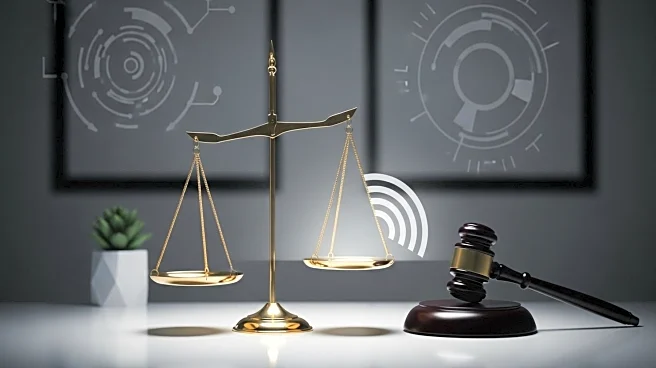What's Happening?
Meta Platforms and TikTok have successfully challenged the European Union's calculation of supervisory fees imposed under the Digital Services Act (DSA). The Luxembourg-based General Court ruled that the methodology used by EU regulators was flawed, requiring a recalibration of the fee structure. The fees, set at 0.05% of annual worldwide net income, were intended to cover the EU's costs of monitoring compliance with the DSA. The court has given regulators 12 months to adopt a new legal basis for the fee calculation, although the fees paid for 2023 will not be refunded. The ruling highlights the need for a delegated act to formalize the fee calculation process.
Why It's Important?
This ruling is significant as it impacts major tech companies operating in the EU, including Meta and TikTok, and sets a precedent for how regulatory fees are calculated. The decision may lead to a more equitable fee structure, particularly for companies with large user bases but operating at a loss. The recalibration of fees could affect the financial planning and compliance strategies of tech giants, potentially influencing their operations and investments in the EU market. The outcome may also prompt other companies to reassess their positions on EU regulatory fees.
What's Next?
EU regulators have 12 months to reformulate the fee calculation methodology, which could lead to changes in how fees are assessed for compliance with the DSA. Companies affected by the ruling, including Meta and TikTok, will likely monitor the development of the delegated act closely. The recalibration process may involve consultations with stakeholders to ensure a fair and transparent fee structure. The decision could also influence future regulatory frameworks and compliance costs for tech companies in the EU.










